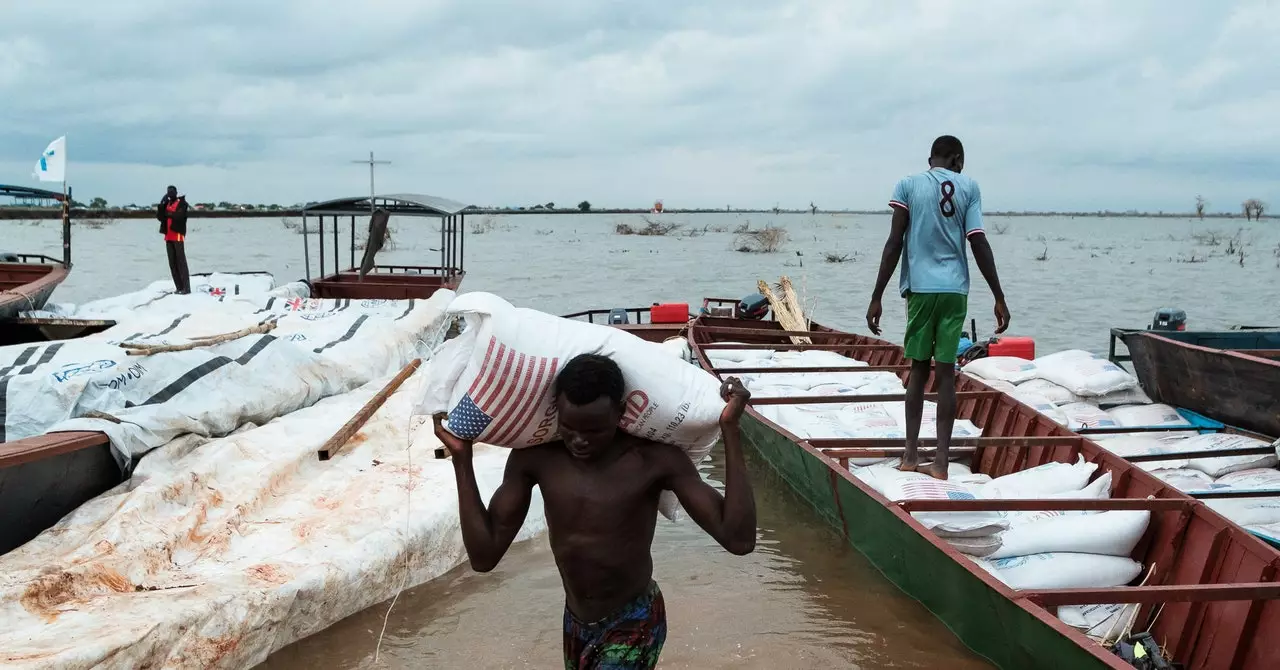The interplay between data-driven analysis, humanitarian aid, and national security has never been more critical than in the context of food insecurity. The Famine Early Warning Systems Network (Fews Net), established to mitigate the impact of famine through accurate forecasting, represents a vital tool in the arsenal of the U.S. government. Its analysis extends beyond simple measures; it encapsulates a range of factors that influence food security. However, recent developments raise concerns about the future of this crucial initiative.
Fews Net is not merely a data-gathering entity; it is a sophisticated analytical platform that incorporates a multitude of variables into its predictions. The system considers factors ranging from climatic conditions—such as rainfall patterns and drought levels—to secondary aspects like locust populations synchronized with satellite technology. Christian Ruth, a historian with insights into USAID, emphasizes that this comprehensive approach enables predictions that can save lives and resources.
Artificial intelligence further empowers Fews Net’s analytical capabilities, allowing it to assess the likelihood of political conflicts that may arise due to instability in food supply. By monitoring economic indicators and contributing to the understanding of local communities’ financial health, Fews Net provides a multi-dimensional view of impending crises. These tools and methodologies are indispensable, especially when considering that food insecurity often intersects with broader social issues.
Despite the critical services provided by Fews Net, it faces potential challenges due to shifting political priorities. According to spokesperson Payal Chandiramani, indications suggest that a waiver from USAID might allow Fews Net to continue its operations. However, questions linger regarding the future support from pivotal governmental agencies, including NASA and NOAA, upon which Fews Net heavily relies. A reduction or elimination of funding from these agencies could severely impair Fews Net’s capabilities, limiting its scope to provide timely and actionable insights into food crises.
Laura Glaeser, a former senior leader within Fews Net, illustrates the network’s importance by stating that it underpins the humanitarian food aid sector, helping direct resources where they are most needed. The efficacy of the U.S. government’s spending on foreign aid is inherently linked to Fews Net’s effectiveness in supply chain analysis and predictive modeling. Without this robust analysis, Glaeser warns that the U.S. taxpayer dollars allocated towards humanitarian assistance risk being squandered, as poor decisions about food aid distribution could lead to exacerbated crises.
The humanitarian initiatives led by Fews Net are often framed primarily as efforts to aid those in distress. However, historians like Ruth assert that these initiatives also serve the geopolitical interests of the U.S. government. USAID and Fews Net’s mission diverges into a dual-purpose strategy: alleviating human suffering while indirectly promoting U.S. foreign policy objectives—a reality controlled by the governance of national security.
Dave Harden, a former assistant administrator for USAID, highlights the dynamic nature of food insecurity interconnected with social unrest and migration. Historical evidence, such as the drought in Syria from the mid-2010s, illustrates how famine can lead to civil discord, resulting in mass migrations that ultimately affect U.S. border dynamics. In an era where the Trump administration emphasizes border security, cutting off assessments from programs like Fews Net could be counterproductive and detrimental to domestic policies.
As discussions surrounding funding and support continue, the implications of potentially crippling Fews Net beg deeper reflection. The narrative surrounding the importance of preventative measures in humanitarian crises underscores the necessity for sustained investment in forecasting systems. Decisions made today regarding aid programs have ramifications that extend well beyond immediate impacts; they resonate through the fabric of international relations and domestic security.
Ruth argues that a myopic view of budgetary cuts overlooks the complex realities within which aid programs operate. Cutting resources based on a simplistic understanding of these systems can lead to unforeseen consequences both for international stability and U.S. national security. The commitment to comprehensive data analytics embodied in Fews Net has historically proven its merit: the challenge now lies in maintaining support for such critical initiatives against the backdrop of shifting political landscapes.
The future of Fews Net represents a larger narrative about the role of data in modern governance and humanitarianism. Its unparalleled capability to analyze multifactorial causes of food insecurity positions it as a linchpin in U.S. foreign policy. Preserving and enhancing such efforts will be vital not only to global humanitarian responses but also to safeguarding U.S. interests and stability.

